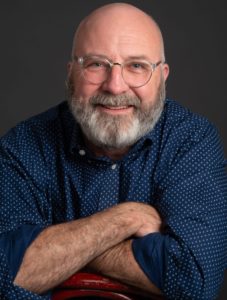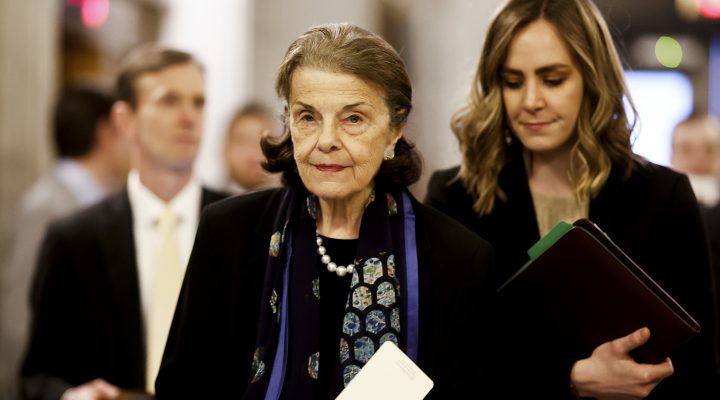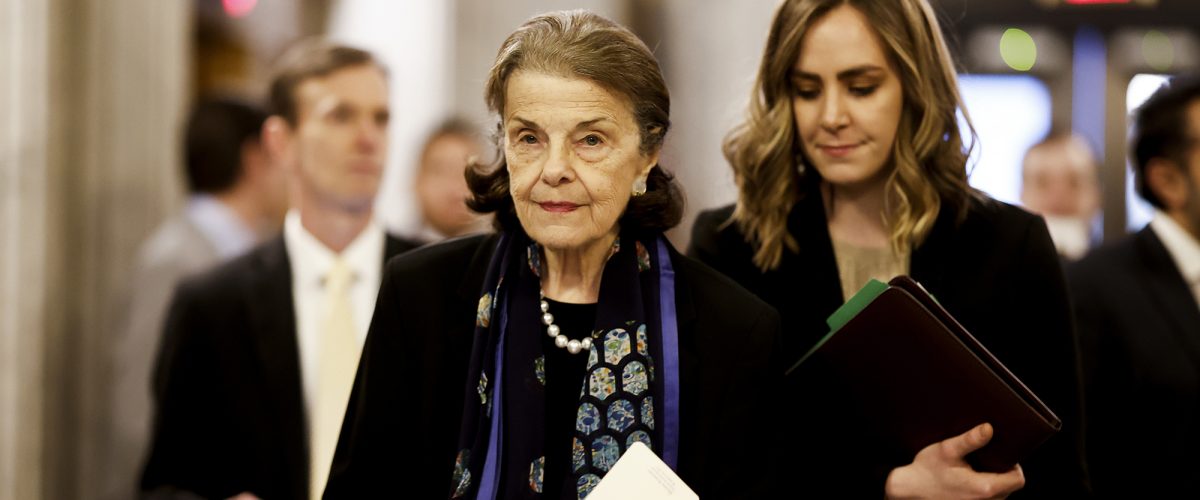Politicians and pastors may share more things in common than you would imagine, but one common trait is ego.
It takes a strong ego to subject yourself to a run for public office, and it takes a strong ego to stand before a congregation every Sunday to declare, “Thus saith the Lord.”
Surely not all pastors and politicians are overtaken with ego. And ego itself is not always a bad thing. After all, it takes a strong ego to write a column about how other people are driven by ego.

Mark Wingfield
The higher profile the pastor or politician, though, the stronger the ego has to be. And the position and notoriety it brings only reinforces that ego, creating a cycle that feeds on itself like a spring storm over the plains of Tornado Alley.
One of the manifestations of such ego is the inability to call it quits, to move on to another phase of life.
This is the talk of California and Washington, D.C., right now, as Democrat Dianne Feinstein, age 89, is stumbling in her ability to do the job she was elected to do in the U.S. Senate. Right now, the only people who seem to think it’s a good idea for her to remain in office are her and the people who depend on her for a paycheck.
“Right now, the only people who seem to think it’s a good idea for her to remain in office are her and the people who depend on her for a paycheck.”
Yet she is not alone in pushing the reasonable age limit for elected service. Other elderly senators who keep getting elected to six-year terms include:
- Chuck Grassley, R-Iowa, 89
- Bernie Sanders, I-Vt., 81
- Mitch McConnell, R.-Ky., 81
And Richard Shelby, R.-Ala., and Jim Inhofe, R.-Okla., both served until this year and didn’t step down until age 88. Patrick Leahy, D.-Vt., just stepped down this year at age 82.
On the pastor side, there’s the high-profile Charles Stanley, who last week died at age 90, still fronting his international preaching ministry and drawing a salary of more than half a million dollars a year until the end. Did he not invest well in a retirement fund? I doubt that’s the case.
In Houston, Ed Young is still preaching most Sundays at Second Baptist Church — even helicoptering between campuses — and he’s 86. His son, also named Ed Young, 62, is closer to a traditional retirement age than his father.
Other megachurch pastors keep going and going like the Energizer Bunny, too. And why? It’s not for a lack of potential successors. They alone are not the bringers of the kingdom of God.
“It’s not for a lack of potential successors. They alone are not the bringers of the kingdom of God.”
But it’s not just megachurch pastors who can’t quit. Plenty of small-church pastors fall into the same trap — sadly, some because they cannot afford to retire, but others because they can’t imagine not preaching.
I’ve heard some preachers declare the word “retire” appears nowhere in the Bible, so they plan to die in the pulpit. They seem to forget the average life expectancy in the first century was into the forties, at best.
It’s also true that different people age at different paces; some 50-year-olds suffer more memory loss than other 90-year-olds. So I’m not arguing here for a mandatory retirement age — except maybe for elected officials, please. Could we talk again about term limits?
The biggest problem is that those who don’t know when to quit often are the ones who most need to quit, and those who hear the call to move on are the ones we’re sad to see go. Sometimes — OK, a lot of times — people in ministry set retirement dates based on what they think they need or want rather than on what’s best for the church or institution they serve.
On one level, that’s fair because of the financial considerations at play. Some folks need to work to a certain age to store up enough retirement funds. But even that scenario can keep a minister on board longer than is good for the church’s health. To everything there is a season.
I’m tempted to prescribe better salary and benefits as the solution to this problem, but then I’m reminded of Charles Stanley and Ed Young — two pastors who clearly have not been undercompensated.
There’s something else at work here for some — not all — pastors, just as with politicians. These roles garner a lot of public attention. It is easy to get addicted to the attention pastors and politicians get, even if it’s annoying to live in a glass house.
“We lack an understanding of ‘call’ related to when to quit.”
The bigger problem, though, is that we lack an understanding of “call” related to when to quit.
Pastors hopefully go into ministry because they have experienced a divine calling. And we love to talk about how God “calls” us to bigger churches along the way. God seldom calls a pastor to a smaller church, it seems.
Yet how often have you heard a pastor, or a politician for that matter, speak of hearing God’s call to move into a new phase of life after full-time work?
I know several former pastors of large and influential churches who, in retirement, have found some of the most meaningful work of their lives in part-time roles. One example is my friend Gary Cook, former executive with the Southern Baptist Sunday School Board and former pastor of First Baptist Church of Lawton, Okla. For the past decade, he’s been the part-time pastor of Gaston Oaks Baptist Church here in Dallas and for a while executive director of Gaston Christian Center. Gary will tell you this last decade of his “retirement” ministry has been the most fruitful of his career.
The most emotionally healthy retired pastors I know — and I assume the same would be true of retired politicians — created identities beyond their role as pastors that gave them something to go toward, not just something to leave behind.
There’s a subtle way we indicate this in our articles at BNG in the brief bios at the end of opinion articles. You’ll notice we seldom say, “Ray Jones is pastor of First Baptist Church.” Instead, we typically say, “Ray Jones serves as pastor of First Baptist Church.” There is a difference between serving in a role and being a role.
One lets you walk away with joy, the other holds you — and everyone else — hostage.
Mark Wingfield serves as executive director and publisher of Baptist News Global. He is the author of the new book Honestly: Telling the Truth About the Bible and Ourselves. By the way, he’s 61.
Related articles:
More Boomers are retiring, and churches need to be prepared
Reflections on a life in ministry: Knowing when to go and knowing when to leave | Opinion by Gary Cook


